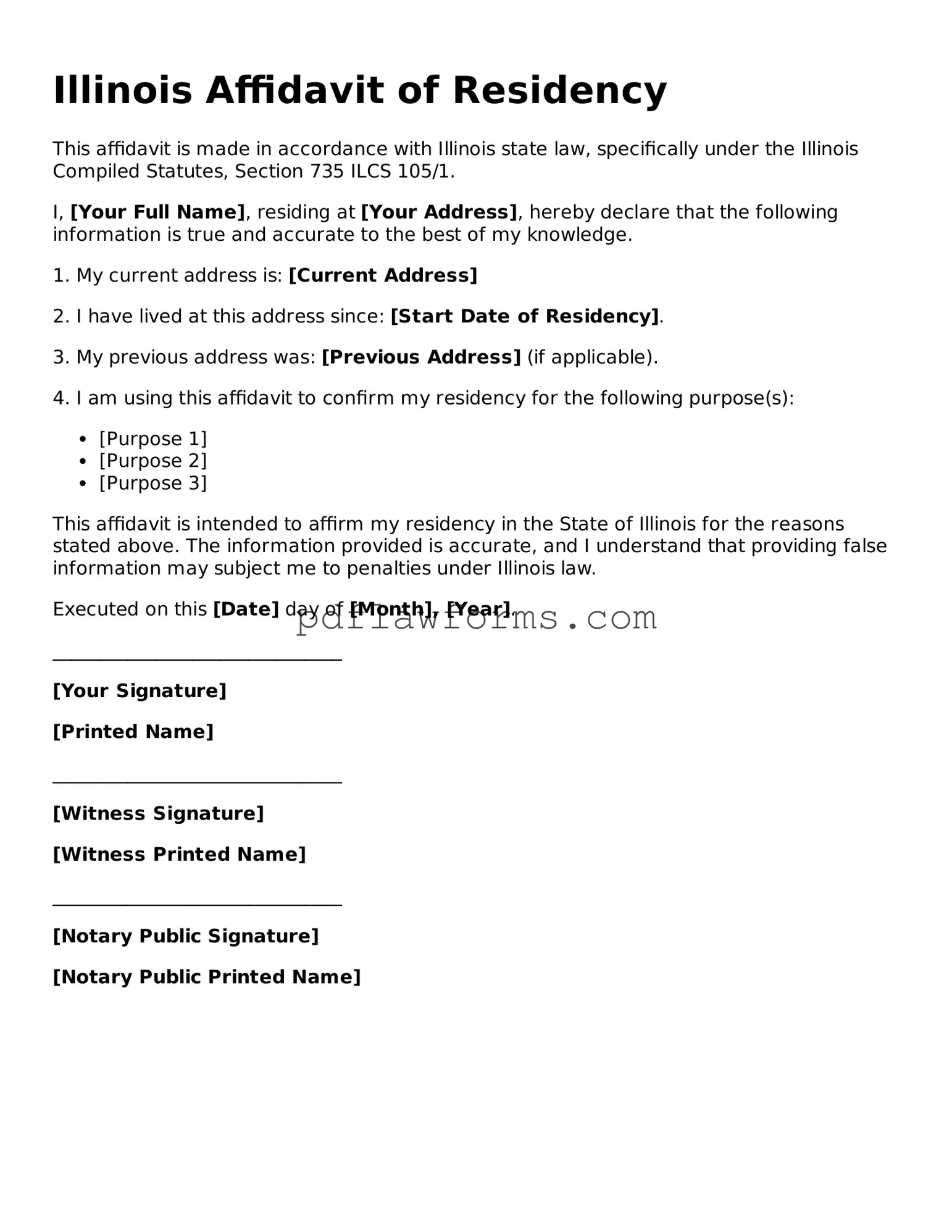Affidavit of Residency Form for the State of Illinois
The Illinois Affidavit of Residency form is a legal document used to confirm an individual's residence in the state of Illinois. This form serves various purposes, including proving residency for school enrollment or other official matters. Understanding how to properly complete this form is essential for ensuring compliance with local regulations.
To get started on filling out the Illinois Affidavit of Residency form, click the button below.
Make My Document Online

Affidavit of Residency Form for the State of Illinois
Make My Document Online
You’re halfway through — finish the form
Edit and complete Affidavit of Residency online, then download your file.
Make My Document Online
or
⇩ Affidavit of Residency PDF
